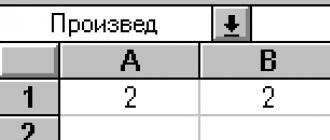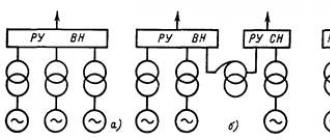The next step after buying a laptop is choosing an operating system. An unsuitable option does not allow you to use all the capabilities of a PC or work comfortably. In the article, we reveal the key points of choosing an operating system for a laptop.
The laptop consists of two parts - hardware and software. Hardware is the processor, memory, screen, keyboard, software - all applications. The main component of the software part is the operating system.
The OS serves as an intermediary between the computer, executing programs and the user. The operating system provides applications and the user with a set of universal services:
- loads programs into memory for execution
- receives and executes user commands.
- organizes interaction with a printer, scanner, network
Windows or Linux
More than 90% of the operating system market is occupied by Windows. Users get better computer hardware support, more than Linux, the number of applications and almost 100% the opportunity to consult with specialists in case of problems.
For the average user, the choice is clear in favor of Windows. Exceptions are when a laptop is used for work and training in IT. But the preparation of the user when using Linux is higher.
Windows XP Laptops
Windows XP came out in 2001 and has become the benchmark for a reliable, stable and secure operating system. Today XP is used on brand new laptops with single core processors and up to 1 GB of RAM.
Conclusion: Windows XP is an acceptable operating system for laptops with limited memory and outdated graphics suitable for office use.
Why skipping Vista
After the successful Windows XP came the unsuccessful Vista. The system had a lot of errors, excessive hardware requirements, constant "brakes" and freezes.
As a result, proven XP was installed on laptops with Vista preinstalled. After the failure, Microsoft has done some serious work. There is a new OS with better performance and lower hardware requirements. This delivered the final verdict on Windows Vista.
Choosing the optimal version of Windows 7
Almost half of computers run Windows 7. Cause: Windows 7 is faster than Vista and Windows XP. If your laptop has at least a 2-core processor and more than 1 GB of RAM, the choice in favor of Windows 7 is obvious.
Choosing a 32 or 64-bit version is guided by the amount of RAM. If the RAM is up to 4 GB inclusive, the OS "sees" a little more than 3 GB. Then it's better to stick with the 32-bit (or x86) version.
The latter requires more memory to work. The transition to the 64-bit version of the operating system is relevant when the installed memory capacity is 6 GB or more.
Windows 8 vs. Windows 7
For most programs, there is no difference between 8 and 7. Accordingly, the performance of Windows 7 and Windows 8 is almost the same.
The main difference is the desktop design. Windows 8 was created at the peak of the popularity of tablets, so the interface is focused on them. In version 8 there is no Start button on the taskbar, in 8.1 it appears again, but the classic menu is not returned. There is no point in installing Windows 8. This is confirmed by less than 8% of computers on which the OS is used
Windows 10 - when there is no choice
Microsoft Windows 10 is the last OS to be released in the old fashion. The main difference from previous versions is that Microsoft supports Windows 10 with continuous updates that have become impossible to disable. As a result, users have the current version of the system.
This is part of the strategy to move to the Windows as a Service model, where the system is constantly changing through updates, without new versions being released.
Official OS requirements remained at the same level as for 7 and 8. There is no point in installing Windows 10 on laptops where Windows 7 works fine.
Old laptops may have problems after installing Windows 10:
- the touchpad does not work correctly
- old printer, scanner are not connected
- wi-Fi disappears
Added to this are privacy concerns: under license terms, Microsoft can control user data.
New laptop models work best under the control of 10. If the manufacturer's official website has drivers only for Windows 10, opt for the 64-bit version of the system.
Before installing the operating system, many people have a question about R12; Which Windows 7 is better to put on your computer. There are several editions of the operating system. It:
Starter
Ultimate
Well, there is still a version of Enterpise (Corporate), but I think the name speaks for itself and we are not considering it. And then the Russian mentality comes into force and says R12; The bigger, the better. And what more, hell knows, if only it was. Okay, if the chickens do not peck money, then let it be, although it is not clear what and why. But if you are going to buy a licensed Windows operating system, and the family budget is bursting at the seams (but still really want to), then you should read this article on how to choose the most suitable Windows for your computer, while saving 5 thousand rubles.
First, let's take a look at the cost of each. Here is an approximate summary of prices for Windows 7 operating systems (prices are considered for boxed versions, i.e. boxes with discs):
Starter R12; price around 1500 rubles
Home Basic R12; 3000 r
Home Premium R12; 5000 rub
Professional (Professional) R12; 8500 RUR
Ultimate R12; up to 11500 r
Now let's take a look at how all of these releases differ from each other. First of all, the higher the version of the program, the more functionality, capabilities and bells and whistles it has. Let's start with the most stripped-down and go ascending
Windows 7 Starter (Initial)
The main difference between this edition and other versions is that it comes out only in 32-bit format. There is no 64 bit version. The most incomprehensible thing about it is that it is not possible to create and play DVD discs (as if the eggs were cut off). Also, it does not have support for such a graphical feature as an effect. Aero... There are still no scissors or notes in it. No remote desktop connectivity. You cannot change the wallpaper on your desktop. In short, there is no nichrome in it and I don't even want to write anything about it anymore (but I will). Stripped down as soon as possible. They also deprived it of support for multiple monitors, printing over the network. Well, in principle, the most basic thing that does not exist. But she flies with a bang!
Conclusion: just right for netbooks, old computers and devices with low performance.
Home Basic
This version is practically no different from the previous version. Unless a center of mobility has appeared in it. That is, in principle, all the differences. I left not far. Why such a difference in price I can't even say. Microsoft has its own cockroaches in the head and we can see this perfectly on the recently released Windows 8.
Conclusion: also suitable for laptops with low performance or old computers.
Home Premium
Here we are already witnessing the emergence of a 64-bit version for more productive computers supporting 64-bit architecture, or in other words, four-core processors. More graphical possibilities such as enabling an effect appear Aeroand automatic change of desktop wallpaper. It is possible to create and play DVD discs. A fully functional Windows Media Center is now available. There is support for multiple monitors, scissors (never used and I don't understand what to cut with them), notes. There is support for tablet computers. In principle, this is a more complete version of the operating system. And you can already think about buying it.
Conclusion: suitable for more productive computers and laptops. Good for games.
Professional (Professional)
What are the main differences between this version of Windows and the previous one. It has the ability to run applications that you previously used on Windows XP, which is good news, since they will not work in previous versions, but this feature is implemented here. You can also do a restore point and data backup over the network. There is a possibility of printing taking into account the network location, connection to a remote desktop.
Conclusion: suitable for more productive computers and laptops. Well suited for games, including online.
Ultimate
In short, it has everything that Microsoft came up with for the Windows 7 operating systems. But here's the question. Do you need it? Unlikely. What are the differences from previous versions. Basically, this is a BitLocker function to protect data from eavesdropping located on computer hard drives or removable media. There are also improvements to the Virtual Desktop Infrastructure (VDI), Enterprise Search Scopes, Direct Boot from VHD, DirectAccess, BranchCache, AppLocker. If these words tell you something (which I doubt very much), then you may think about buying this version.
Yes, and there is still no possibility of choosing the system language from 35 different ones (do you need this? Unless you are of course a polyglot).
Here's a quick overview of the various editions of the Windows 7 operating system.
Conclusion: I think the most optimal one for homework is Home Premium or Home Extended. Well, you can still think about buying Professional (Professional)is also not bad for home use. You don't even need to look at the rest.
More details can be found here in this summary table of the capabilities of various OS versions
Capabilities |
Windows 7
|
Windows 7
|
Windows 7
|
Windows 7
|
Windows 7
|
Taskbar and Jump Lists |
+ |
+ |
+ |
+ |
+ |
Search |
+ |
+ |
+ |
+ |
+ |
Join a homegroup |
+ |
+ |
+ |
+ |
+ |
Windows Media Player |
+ |
+ |
+ |
+ |
+ |
Backup and recovery |
+ |
+ |
+ |
+ |
+ |
Extended media playback |
+ |
+ |
+ |
+ |
+ |
Support Center |
+ |
+ |
+ |
+ |
+ |
Device Stage (device connection algorithm) |
+ |
+ |
+ |
+ |
+ |
+ |
+ |
+ |
+ |
+ |
|
Bluetooth support |
+ |
+ |
+ |
+ |
+ |
Fax and Scanner |
+ |
+ |
+ |
+ |
+ |
Base games |
+ |
+ |
+ |
+ |
+ |
Credential manager |
+ |
+ |
+ |
+ |
+ |
Number of applications |
Unlimited |
Unlimited |
Unlimited |
Unlimited |
Unlimited |
Preview thumbnails from the taskbar |
+ |
+ |
+ |
+ |
|
Fast user switching |
+ |
+ |
+ |
+ |
|
Creating an ad hoc wireless network |
+ |
+ |
+ |
+ |
|
Multiple monitor support |
+ |
+ |
+ |
+ |
|
Windows Mobility Center (no presentation setup) |
+ |
+ |
+ |
+ |
|
Aero R12; transparent windows and easy navigation |
+ |
+ |
+ |
||
Aero R12; Background |
+ |
+ |
+ |
||
Windows Touch (supports multitouch and handwriting) |
+ |
+ |
+ |
||
Creating a home group |
+ |
+ |
+ |
||
Windows Media Center |
+ |
+ |
+ |
||
Remote media streaming |
+ |
+ |
+ |
||
DVD video playback and authoring |
+ |
+ |
+ |
||
Premium games |
+ |
+ |
+ |
||
Snipping Tool, Sticky Notes, Windows Journal |
+ |
+ |
+ |
||
Windows Slideshow (Sub display) |
+ |
+ |
+ |
||
Location Aware Printing |
+ |
+ |
|||
Domain Registration and Group Policy Control |
+ |
+ |
|||
Remote Desktop |
+ |
+ |
|||
Advanced Backup (Network and Group Policy) |
+ |
+ |
|||
Encrypted file system |
+ |
+ |
|||
Windows XP Mode |
+ |
+ |
|||
Windows Mobility Center: Presentation Mode |
+ |
+ |
|||
Offline folders |
+ |
+ |
|||
Windows BitLocker and BitLocker To Go (data encryption) |
+ |
||||
Windows AppLocker |
+ |
||||
DirectAccess (replacing trusted virtual private networks (VPN)) |
+ |
||||
Windows BranchCache (Network Load Management) |
+ |
||||
Multilingual user interface packages |
+ |
||||
Enterprise Search Scopes (search for information in the corporate network) |
+ |
||||
Desktop virtual infrastructure improvements |
+ |
||||
Boot from HVD |
+ |
Also, a detailed summary table of the features of these releases can be viewed on the official Microsoft website.
Hello friends and guests of the site. This article will focus on choosing Windows version... Before installing the operating system on a computer, it would not hurt to determine which version of windows is better for you. Which version is more optimal and will allow you to get the most out of your computer. At the same time, which one is more convenient and functional.
The need for this post exists, as we are convinced many times in life that the new is not always the best replacement for the previous one. Of course, there are many improvements in new versions of operating systems, but sometimes there are reasons why some people refrain from using the new one. We will consider windows XP, windows 7 and windows 8 as contenders.
We exclude windows Vista since version 7 was released instead.
What is XP good for and for whom is it suitable?
The advantages of good old XP are its relative ease for weak computers. XP requires significantly less RAM to run. There are some performance advantages over Windows 7. Perhaps this is due to the "severity" of Windows 7. Given the fact that from 2003 to 2011 Windows XP was the most used OS, we can say that for a person using old software and happy with it, XP will remain the preferred option. The disadvantage of XP is that it “does not see” RAM larger than 4 GB. When using 4 GB or more, the system can only use 3.25 GB. DirectX 9 or higher support.
Windows 7

As for windows 7, this OS was released in 2009, 8 years after xp and of course it is somehow better than XP. Namely, a more convenient and beautiful interface. There is an AERO style that is easy to get used to. There is transparency of windows. These embellishments require additional resources, so on weak computers such as netbooks, Windows 7 will slow down. In terms of security, Windows 7 has the advantage over XP in the form of UAC (User Account Control). This service prevents programs from performing important actions on system files without permission. If in Windows XP, the virus, starting, could quietly make changes in the system areas, then in Windows 7 the UAC service, noticing attempts to make changes, will report this on a darkened screen and "ask" whether you allow such and such a program to make changes on the computer. Also in the seven it is easier. Windows 7 has more suitable device drivers built in, so that after installation, all device drivers are often installed, sometimes 1-3 devices are left without a driver. As disadvantages, I can cite the incompatibility of some old programs and games with Windows 7. Although 7 has a launch tool in windows xp mode, this does not always help.
Recommended system requirements:
processor - 1 GHz | RAM - 1 GB for 32-bit version and 2 GB for 64-bit | DirectX9 graphics card | 16 GB for 32-bit version and 20 GB for 64-bit version of free hard disk space.
Windows 8

Windows 8 is the last OS from Microsoft released on October 26, 2012.
The focus is on tablet computers. Changed interface, now instead of tiles on the desktop. With the proliferation of internet technology and tablets, windows 8 is targeting exactly this kind of computers. The modern style used in windows 8 allows you to keep abreast of events taking place on the Internet (in social networks, on news sites), is more closely integrated with the Internet. For conventional computers, without a touch screen it can be inconvenient at first. It should be borne in mind that programs for windows 8 can only be downloaded through the Windows Store. This applies to Metro interface programs. Programs that worked on previous Windows work here as well. Recently switched to 8 from 7. In terms of performance, I should say 8 is a little better. Manufacturers kind of built two interfaces into this OS. You can use the familiar desktop interface. Someone will love the new tile interface. You can easily switch between them. The start button is gone, but all programs can be seen by going to the tiles and right-clicking on an empty space and selecting “all applications”. I will soon write more about the innovations in Windows 8 in a separate article.
System requirements according to manufacturers' statements are even lower than those of Windows 7.
Please note that each version of windows has editions (starter, home basic, home premium, professional, ultimate), which have some differences in functionality. The starting one has the most functional limitations, while the maximum, on the contrary, has no limitations. It is best to set the Ultimate.
Summing up the above, we can understand that it makes sense to install windows XP on a computer if the user is interested in launching programs released a very long time ago, and which do not work (or do not work quite correctly) on windows 7. Also, if your computer is not the most powerful (released 5 years or more ago), it is possible better to choose windows XP... For new computer users who are just starting to master the computer suitable for both windows 7 and windows 8... If your computer is equipped with more than 4 gigabytes of RAM, it is better to use the 64-bit edition of windows 7 so that programs can use the entire amount of RAM. Recommend select windows 8 for installation on computers with a touch screen and on ordinary computers it should be installed.
Using your experience and the above differences between Windows versions, decide which version of windows you will install on your computer. If you remember other pros and cons of these versions, please pour them out in the form of a comment, this will help other visitors.
Good day. Today I want to talk to you about which system is better to install on your computer. I must say right away that the article will be focused on Windows OS, since it is better for an ordinary "ordinary" user to use it. It, unlike such systems as Linux and the like, is much clearer and much easier to understand.
So my answer to the question, what system to installon your computer sounds exactly like this: Windows. Choose and install Windows for yourself. But this is naturally not the end of the article, but just beginning, because you still need to decide which version of Windows to choose.
We will not analyze old Microsoft developments, such as Windows 98 or Windows 2000. I don't think anyone would want to install them, these are systems of the last century. The most used systems today are Windows 7, 8, XP and Vista. We will talk about them, I hope my descriptions and recommendations will help you, and as a result, it will be much easier to decide which Windows to choose for your computer or laptop.
Let's start with XP and end with Eight.
Windows XP operating system was released in 2001. And in the period from 2003 to 2011 it was the most popular in the world. Its market share peaked at about 76 percent, which was achieved in January 2007. From this we can immediately conclude that the system is good.

I have been using Windows XP for about two years, and I can tell you that, despite the fact that it came out a long time ago, today it still copes well with everyday tasks. But it's worth remembering that new programs and games that come out may not work on XP. Application developers are focusing more and more on Windows 7 and up.
I would not recommend installing Windows XP unnecessarily. There are, of course, exceptions, for example, it is good to install this system on older computers, since the system requirements for XP are not high. But there are already very few people with old PCs, so the described system disappears.
Windows Vista operating system appeared on the market in 2007, but did not meet the expectations of users. It did not become very popular and its maximum market share was about 18 percent in October 2009.

In my opinion, the only thing that makes it better than the good old Windows XP is its design, various interesting effects and the like, and to everyone else it is only worse. Although I have not used Vista and may be wrong. But the fact that a bunch of different software does not work on Windows Vista is really so. I read it on the Internet and therefore immediately switched to the Seven from XP. I'll tell you about her now.
Windows 7 operating system - This is the most popular version of Microsoft today. It was released in 2009, and this time it met our expectations. Although many call the "Seven" a refinement of Vista. I agree, the systems are very similar. But I can tell you that Windows 7 is a really great system. It is much more stable, it does not need to be reinstalled as often as it was with XP. It also works much faster.

When I was using Windows XP and decided to try the 7, I was honestly surprised. Programs work much faster, they freeze less often, but even if this happens, the frozen program can be disabled through the Task Manager program, and in XP this feature did not always work. It happened that on XP everything would freeze so much that only the "Reset" button on the system unit helped.
Windows 8 operating system Is the latest version of the line. What can I say about it after a couple of months of use? This is a modified "Seven". Windows 8 came to a flat design, removed shadows and volume. In general, everything follows the trend. It works even faster. The fact that it doesn't have a Start button is actually nonsense. It's not worse, you get used to it very quickly. And a little later an update will be released, where the Start button, as I understand it, will be returned.

Windows' new Metro interface is cool, you can't say anything. But that he somehow greatly simplified the work on the PC, I did not notice. The only thing I liked about Windows 8 is even faster performance!
Which Windows should you choose? The answer is now yours alone. I described four versions of Windows to you, I think now it will be easier for you to decide. As far as recommendations are concerned, I would not recommend installing Windows XP or Vista. Better take a look at the latest operating systems Windows 8 and Windows 7.

Work in it, after a while go to the "Eight", and it seems to me that you will very soon understand what you prefer.
This concludes my article. I hope now questions, what system to install, and which Windows to choose is not very difficult for you and you have already decided what to choose.
Microsoft improves and optimizes every product. Each new version of the Windows operating system has a number of advantages or disadvantages before the previous product, but each time a new OS is different its shell and the presence of new options.
It is impossible to say which version of the operating system is better: each software is different decent performance and versatility indicators. Most people like the old Windows builds with a comfortable and well-established design, but they lack the Microsoft support program, unlike the new ones, which are improving every day based on user feedback.
Comparing Windows 7 and 10: what's the difference 
Despite the peak in popularity of Windows 10, many users remain loyal to the Seven. Windows 7 has:
- habitual design and convenient location of all options,
- recovery center and stable performance,
- easy software filling that does not load the processor.
Most users prefer the seventh OS, but if the "seven" is significantly ahead of the eight in functionality and performance, then Windows 10 is serious competitorwinning in many parameters. In addition to fast performance and ease of management, "ten", in contrast to Windows 7, has:
- light system backup and recovery center,
- constant upgrade and shell optimization,
- work with the latest drivers and application support,
- support DirectX 12 and Microsoft Edge.
Despite the widespread popularity of Windows 7, the OS is obsolete a variant that is gradually losing its former multifunctionality and quality of work. If the user appreciates convenience the location of the functionality of the "seven" and the old design, then Windows 7 is an excellent choice. This OS fit for people of the third age or old school - those for whom the convenience of work is more important productivity.
Windows 7 or 8: version features 
These operating systems are very similar in appearance, however, Windows 7 has a larger potential and the best performanceas well as a comfortable and familiar design. According to statistics, users are not faced with a choice between version 7 and 8, many return to the "seven" after testing Windows 8.
Windows 8 did not become a breakthrough in the computer manufacturing industry like 7 or 10. This operating system has inconvenient desktop, start menu and item layout. The G8 was originally aimed at the operation of mobile devices and one should not expect any special performance in games or general performance from this OS. OS is tailored for work on touch gadgets, as well as increased energy efficiency and on stationary PCs may not be as comfortable as the counterparts of the seventh or tenth version.
Which is better - Windows 8 or 10
Windows 10 is multifunctional: it will be convenient to use the OS both on a stationary PC and on mobile platforms. By choosing the tenth version, you get wide-profile and a stable operating system with a wide range of functions and additional configurations. Windows 10 is the most demanded an operating system that gets better every day. "Ten" allows:
- use the new Microsoft Edge browser,
- work with several virtual tables,
- use option analysis disk space,
- enjoy notification center,
- launch games for Xbox One.
Microsoft invests more resources to support and optimize version 10, which is the most demanded and popular version after the gradually dying "seven". The eighth version is made to work mobile platforms is based on Windows and has a number of disadvantages in the interface: it is difficult to get used to the OS and master the basic functions, which is significant distinguishes Figure eight from 10 and 7 versions.
So what to choose
In order to receive best performance and the ability to use all available configurations, recommended Perform a clean install of the operating system. Installing Windows by upgrading significantly degrades performance computer and may cause some drivers or applications to malfunction.
It is believed that each subsequent version of Windows is better than the previous one: in new versions improves and the software is rotated and the performance of the operating system is improved. However, ordinary users, for whom a slight increase in power will not give special advantages, choose the OS based on their own comfort of using the software. The choice of the operating system is a matter of habit and in many respects it all depends on the nature of the user.







